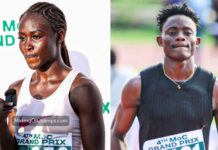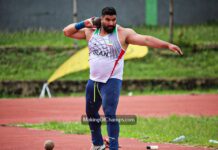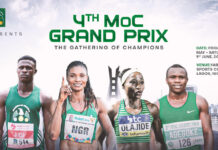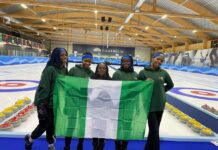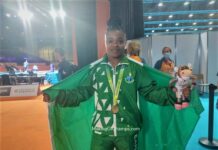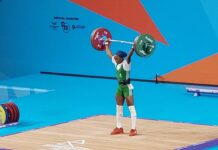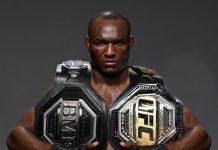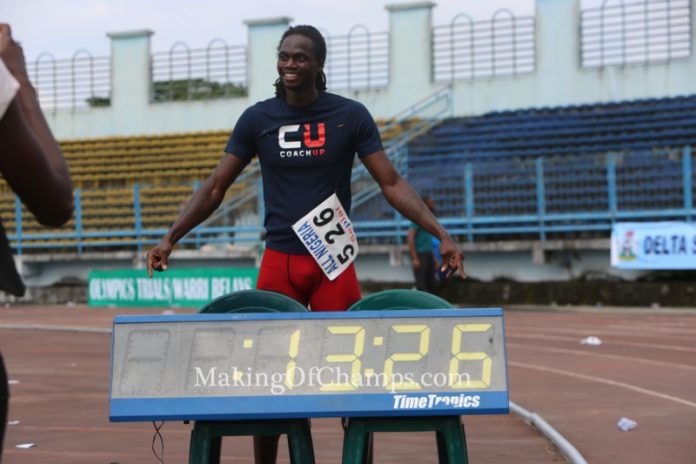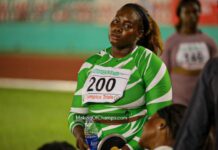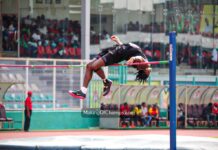Antwon Hicks has been presented with the opportunity of a lifetime after qualifying for the Rio 2016 Olympics with a Season’s Best (SB) of 13.27s, which he clocked on Day 1 of the ongoing Nigerian Trials holding at the Sapele Township Stadium in Delta State.
Alex Al-Ameen came 2nd in 13.87s, while Oyeniyi Abejoye finished 3rd in 13.89s. Martins Ogieriakhi had to pull out of the final despite winning Heat 1 of the semis because he suffered from cramps just before the race.
In the women’s 100m Hurdles, Lindsay Wenyime, another former US Athlete who switch allegiance to Nigeria in 2014, retained her national title albeit without the Olympic qualifying mark. She returned a time of 13.16s, with Grace Ayemoba following in 13.84s, and Efe Favour 3rd in 13.97s.
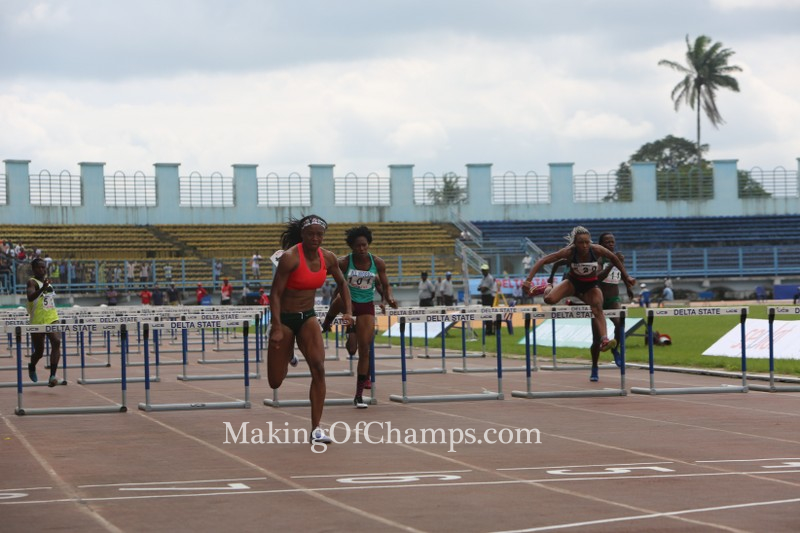
Hicks has a Personal Best (PB) of 13.09s set in the semis of the US Trials for the Beijing 2008 Olympics. The 33-year old came close to representing the US at the 2008 and 2012 Olympics but finished 5th and 4th respectively at the US trials, thus missing out on a place on the team.
There is some irony to the fact that the 2002 World Junior Champion for the US has smashed the Nigerian 110 Hurdles Record (subject to ratification from the Athletics Federation of Nigeria) held by William Arese (13.42s), which stood for 23 years.
Hicks’ outstanding performance once again blows open the debate as to whether American athletes with no obvious links to Nigeria should be recruited to represent the nation.
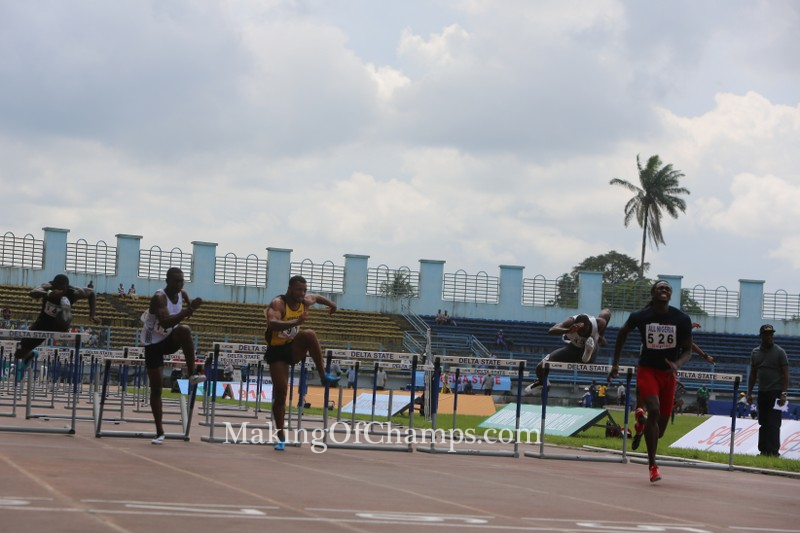
Two years ago when Hicks and other former US athletes first arrived on Nigerian shores for the first time was when we first asked, should these athletes be running for Nigeria? When asked about their direct links to Nigeria, they mostly mentioned that their grandparents had ties to Nigeria, and originated from Delta State.
What conditions were fulfilled in getting them to compete for Nigeria when the Nigeria citizenship law clearly states that one must have at least one Nigerian parent to naturalise, if you were not born in Nigeria? Having grandparents that originate from Nigeria, even if true, does not automatically confer citizenship on any individual.
Should a country that has produced Athletics greats like Innocent Egbunike, Olapade Adeniken, the Ezinwa brothers, Chioma Ajunwa, Mary Onyali, Falilat Ogunkoya and Blessing Okagbare amongst others, take the short cut of getting foreign athletes to represent Nigeria rather than invest in homegrown talent?
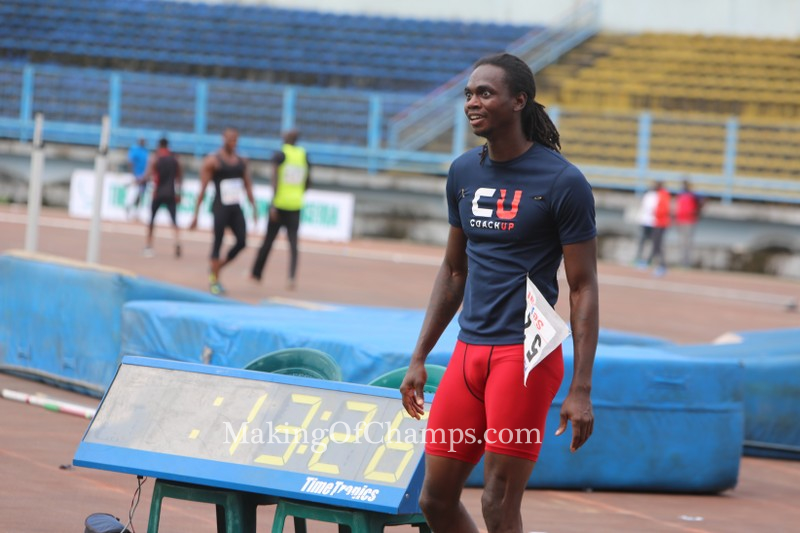
It is further alarming to note that Nigerian athletes have now joined in the mass exodus to other countries due to lack of support from the appropriate authorities. There is also no indication that the tide will be stemmed any time soon, with the country losing its best talents to European and Asian countries, while Nigeria is left the poorer for it.
Only last week it came to the fore that young talent and former African 400m Youth Champion Edidiong Ediong had been officially cleared by the IAAF to compete for her adopted country, Bahrain, joining the likes of Kemi Adekoya (Bahrain), Femi Ogunode (Qatar) and Peter Emelieze (Germany) who had to switch allegiances all in a search for greener pastures.
When will the authorities concerned take heed to the saying that “The grass is not greener on the other side; it’s greener where you water it.” All that said, Hicks can now bask in the glory of his fastest time in three years and a first Olympic appearance.
We wish him the best while donning the colours of Nigeria and hope that his presence can somehow aid in the development of up and coming hurdlers in Nigeria.
